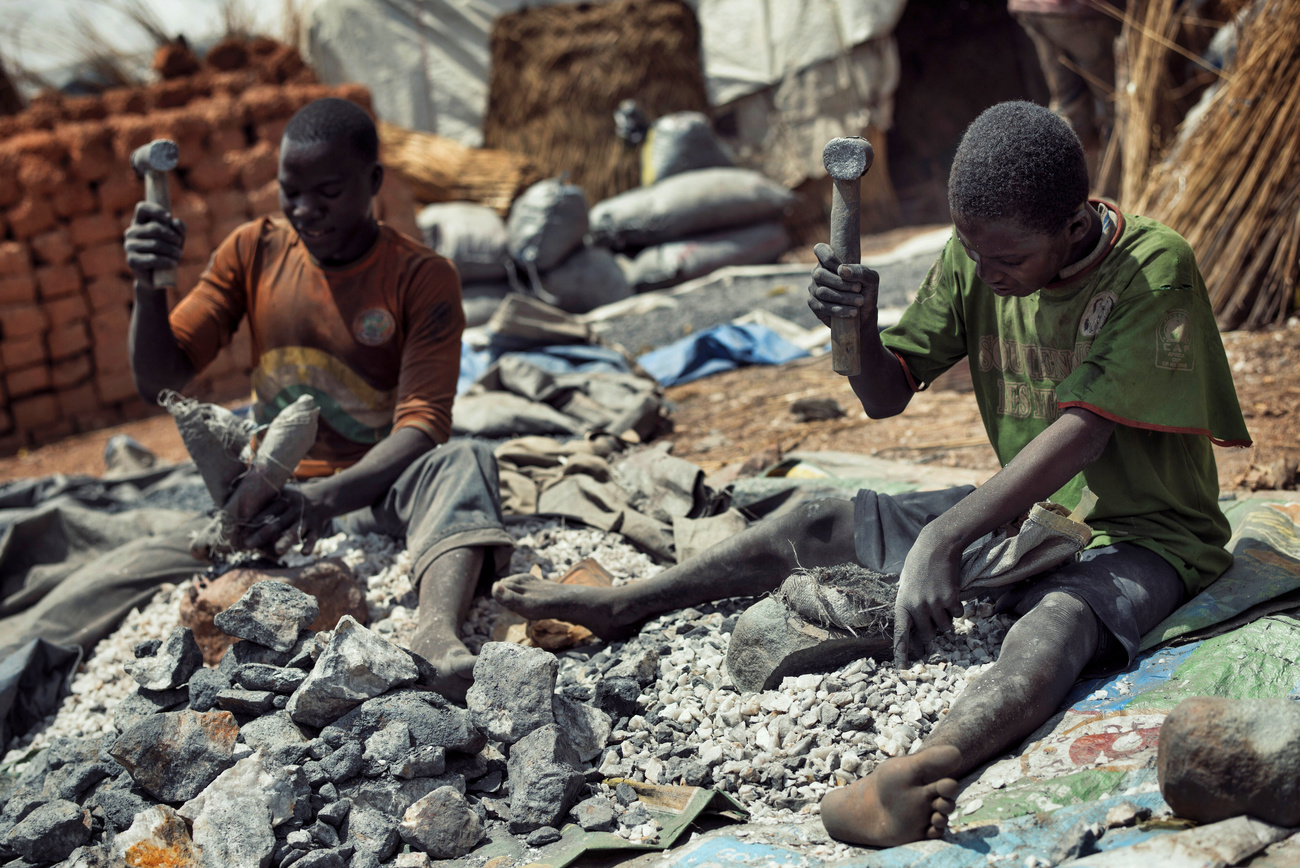A death blow or a new lease on life for the responsible business initiative?

Years of back and forth on imposing legal accountability for companies overseas have come to an anticlimactic end in parliament. For campaigners on both sides of the initiative though, it is just the beginning.
Our regular analysis of what the biggest global companies in Switzerland are up to. This week: future of the responsible business initiative, cocoa in Ivory Coast and palm oil deals.
This week the Swiss parliament finally agreed on a counter-proposal to the highly contested responsible business initiative. After more than four years of debate, one would think a compromise would be cause for celebration.
However, the compromise is far from what campaigners of the initiative had in mind. As my colleague Andrea Tognina reports, the legal liability clause – the big bone of contention – was removed. The requirements on due diligence were also whittled down to such an extent that it would hardly push big companies beyond what most are already doing.
Campaigners for the initiative plan to bring the initiative to the people for a vote this fall or early 2021. But the vote won’t be a zero-sum game, meaning that a vote against the initiative means parliament’s milder form would still go forward. Is this a good consolation prize for campaigners or simply a safe escape route for the opposition? Could this doom the initiative or breathe new life into it?
The initiative promoters have said the compromise is a fig leaf and argued that it will do little to hold companies accountable for their actions. Instead, they’ll publish glossy brochures once a year.
Either way, the battle for public opinion is heating up and it will get more difficult for multinationals to hide behind industry lobbies. Both sides have already started tallying up supporters among business executives and entrepreneurs.
On one side you have executives supporting the Economic Committee for Responsible CompaniesExternal link and on the other sideExternal link, those warning of the initiative’s potential damage. Still, many of the biggest companies have been reluctant to attach their name to any one side, at least publiclyExternal link.
What do you think of the prospects for the initiative? How do you see the campaign heating up where you are? I want to hear from you: jessica.davis@swissinfo.ch.
In other news:
Chocolate is increasingly coming from illegal cocoa plantations in Ivory Coast. An investigative report by the NZZ paper uncovered a deep web of corrupt intermediaries, children with machetes and exploitation in protected forests, all despite corporate and government commitments to eliminate all of the above.
According to the report, every sixth chocolate bar has its origins in the nature reservesExternal link in the Ivory Coast and the situation is getting worse. Chocolate manufacturers like Barry Callebaut don’t know the origins of much of their cocoa and as one intermediary in the article says, “if you don’t know where the beans come from, you know that they often come from the wrong place”
Employees at Richemont are crying foul over salaries. As the Le Temps paper reports, workers at the luxury group are frustrated by the CHF41 million executives raked in last year. The company’s announcement that executive committee salaries were up by more than 35% coincided with news that employee bonuses would be slashedExternal link, leading some workers to go on strike in parts of Italy.
A day after the story broke, the company reacted saying it came down to bad timing and poor communication. Since April, salaries of the executive committee have all been cut to compensateExternal link for the impact of the coronavirus.
A battle between principles and pragmatism is playing out around palm oil. Left-wing farmer unions are collecting signatures for an initiative to remove palm oilExternal link from a recently signed free trade agreement with Indonesia. However, according to the Tages-Anzeiger, politicians on the left are divided as to whether such a move would actually improve the situation.
The trade deal includes requirements on sustainable production for the first time, which some say could set the bar for other free trade agreements. But, the finer details on things like enforcement are still to be worked out. Moreover, as my colleague Anand Chandrasekhar has reported sustainable palm oil certification is far from perfect.
And, check out our new website with a special focus on gold and deforestation.
Thanks for reading.

In compliance with the JTI standards
More: SWI swissinfo.ch certified by the Journalism Trust Initiative











You can find an overview of ongoing debates with our journalists here . Please join us!
If you want to start a conversation about a topic raised in this article or want to report factual errors, email us at english@swissinfo.ch.